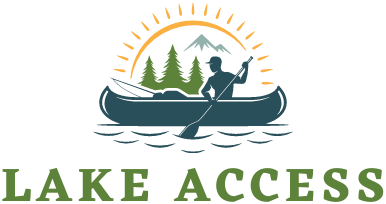The allure of living on the seafloor cannot be denied. Many people find the peacefulness, gently rocking, and ever-changing scenery appealing as a way of life. If you’re thinking about buying a houseboat, you might be wondering, “How much does a houseboat cost?” In this post, we will look at the elements that influence houseboat prices, present a cost breakdown, explain the advantages and disadvantages of buying versus renting, and provide valuable recommendations for prospective houseboat purchasers. Let’s get started!
What exactly is a houseboat?
A houseboat is a floating structure that can be used as a permanent residence or as a holiday home. It combines the conveniences of a house with the mobility of a boat, allowing people to live on the water and enjoy a unique way of life. Houseboats range in size and style from small floating cottages to opulent floating homes.
Factors Influencing Houseboat Costs
Location
The location plays a significant role in determining the cost of a houseboat. Prices can vary depending on whether you plan to dock your houseboat in a popular marina in a prime waterfront city or in a more secluded and remote area. Desirable locations often come with higher price tags, so it’s essential to consider your budget and lifestyle preferences.
Size and Layout
The size and layout of a houseboat are crucial factors affecting its cost. Larger houseboats with more spacious interiors and multiple bedrooms tend to be more expensive. The materials used for construction, such as high-quality wood or fiberglass, can also impact the price. Additionally, the availability of amenities like a kitchen, bathroom, and entertainment systems can influence the overall cost.
Age and Condition
The age and condition of a houseboat can significantly affect its price. Brand new houseboats with modern features and technologies will generally be more expensive compared to older models. However, well-maintained used houseboats can offer a more affordable option without compromising on quality. It’s important to carefully inspect any pre-owned houseboat for signs of wear and tear before making a purchase.
Customization and Upgrades
Customization and upgrades are additional factors to consider when determining the cost of a houseboat. Some buyers may prefer to add personal touches and modifications, such as upgraded appliances, enhanced interior design, or specialized equipment for water sports. These customization options can increase the overall price of the houseboat.
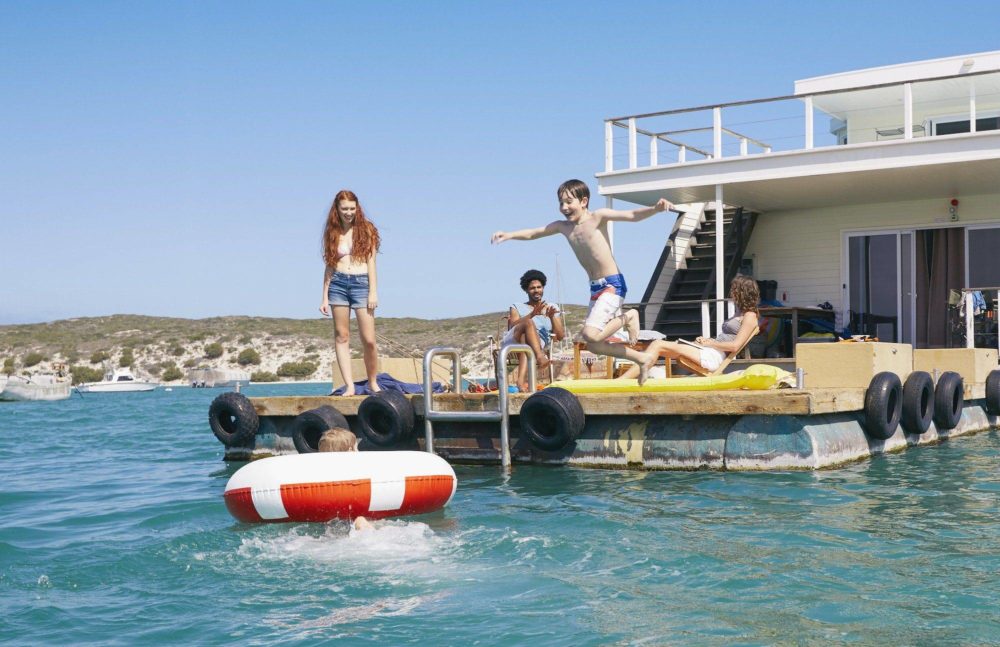
Types of Houseboats
When it comes to houseboats, there are different types to choose from based on your preferences and budget.
Traditional Houseboats
Traditional houseboats, also known as floating homes, are typically stationary and permanently moored. They offer a more house-like experience with spacious living areas, multiple stories, and even gardens. Traditional houseboats are often found in marinas or dedicated floating home communities. Their prices can vary based on location, size, and amenities.
Pontoon Houseboats
Pontoon houseboats are versatile and popular choices. They are built on pontoons, which provide stability and buoyancy. These houseboats are designed for leisurely cruising and can be moved between different water bodies. Pontoon houseboats come in various sizes and configurations, ranging from compact models to luxurious options with multiple decks.
Catamaran Houseboats
Catamaran houseboats feature two parallel hulls, offering excellent stability and spacious interiors. They are known for their wide living areas and comfortable cruising capabilities. Catamaran houseboats are ideal for those seeking a luxurious and stable living experience on the water. However, they tend to be higher priced compared to other types.
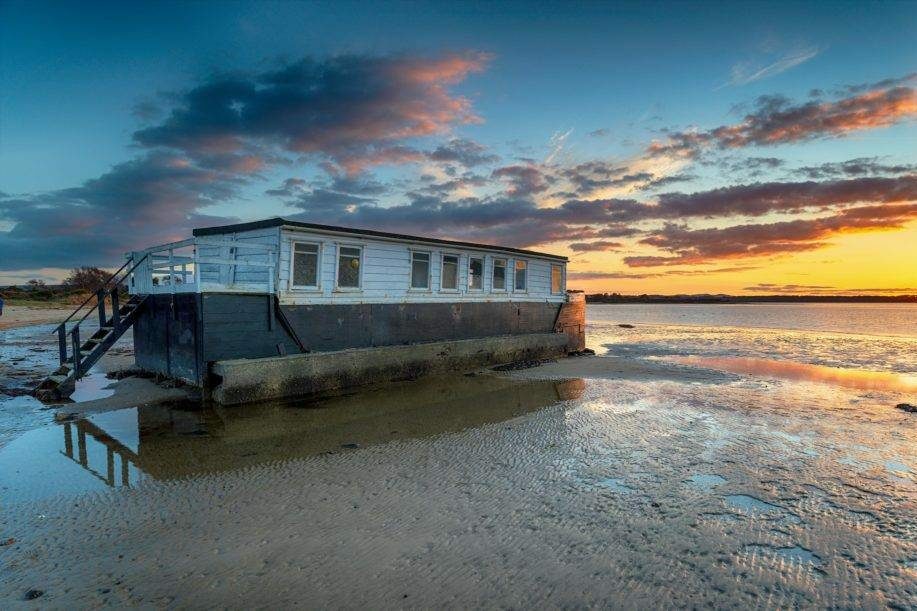
Cost Breakdown
Now let’s delve into the average cost range of houseboats, broken down into different categories:
1. Entry-Level Houseboats: These typically range from $50,000 to $150,000. They are often smaller in size, simpler in design, and may have fewer amenities.
2. Mid-Range Houseboats: The average cost for mid-range houseboats falls between $150,000 and $300,000. These boats offer a balance between affordability and comfort, with decent space and amenities.
3. High-End Houseboats: For those seeking luxury and indulgence, high-end houseboats can cost anywhere from $300,000 to several million dollars. These premium vessels feature top-of-the-line finishes, advanced technology, and ample living space.
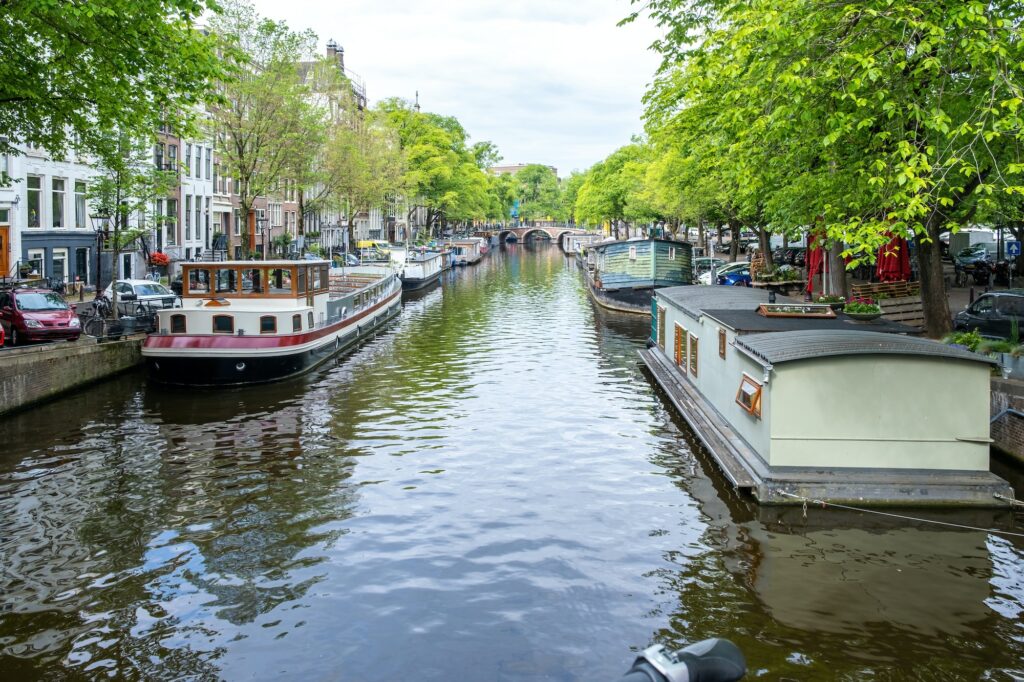
Additional Costs
Mooring Fees
Mooring fees are recurring costs associated with docking a houseboat in a marina or harbor. These fees cover the use of facilities, such as electricity, water, and waste disposal. Mooring fees vary based on the location and amenities provided by the marina.
Maintenance and Repairs
Owning a houseboat involves ongoing maintenance and occasional repairs. Regular maintenance tasks include cleaning, painting, and servicing the engine and other systems. It’s important to budget for these costs to ensure the longevity and proper functioning of your houseboat.
Insurance
Houseboat insurance protects your investment from potential risks, including damage, theft, and liability. The cost of insurance depends on various factors such as the value of the houseboat, its location, and the coverage options you choose. It’s advisable to obtain insurance to safeguard your financial investment.
Buying vs. Renting
Deciding whether to buy or rent a houseboat depends on your financial situation, lifestyle preferences, and long-term plans.
Pros of Buying a Houseboat
- Equity and Investment: Owning a houseboat allows you to build equity, similar to traditional home ownership. If the value of the houseboat appreciates over time, you may benefit from a return on your investment.
- Freedom and Personalization: Buying a houseboat gives you the freedom to customize the interior to your liking. You can create a space that reflects your style and preferences.
- Potential Cost Savings: In the long run, buying a houseboat may be more cost-effective than renting if you plan to live on it for an extended period. Monthly mortgage payments can be comparable to or even lower than rental fees.
Pros of Renting a Houseboat
- Flexibility: Renting a houseboat offers flexibility. If you’re unsure about committing to houseboat living long-term, renting allows you to test the waters without the financial commitment of ownership.
- Maintenance and Repairs: When you rent a houseboat, the responsibility for maintenance and repairs typically lies with the owner or the rental company. This can save you time, effort, and money.
- Lower Initial Costs: Renting a houseboat requires a lower upfront cost compared to purchasing one. You can enjoy the houseboat lifestyle without a significant initial investment.
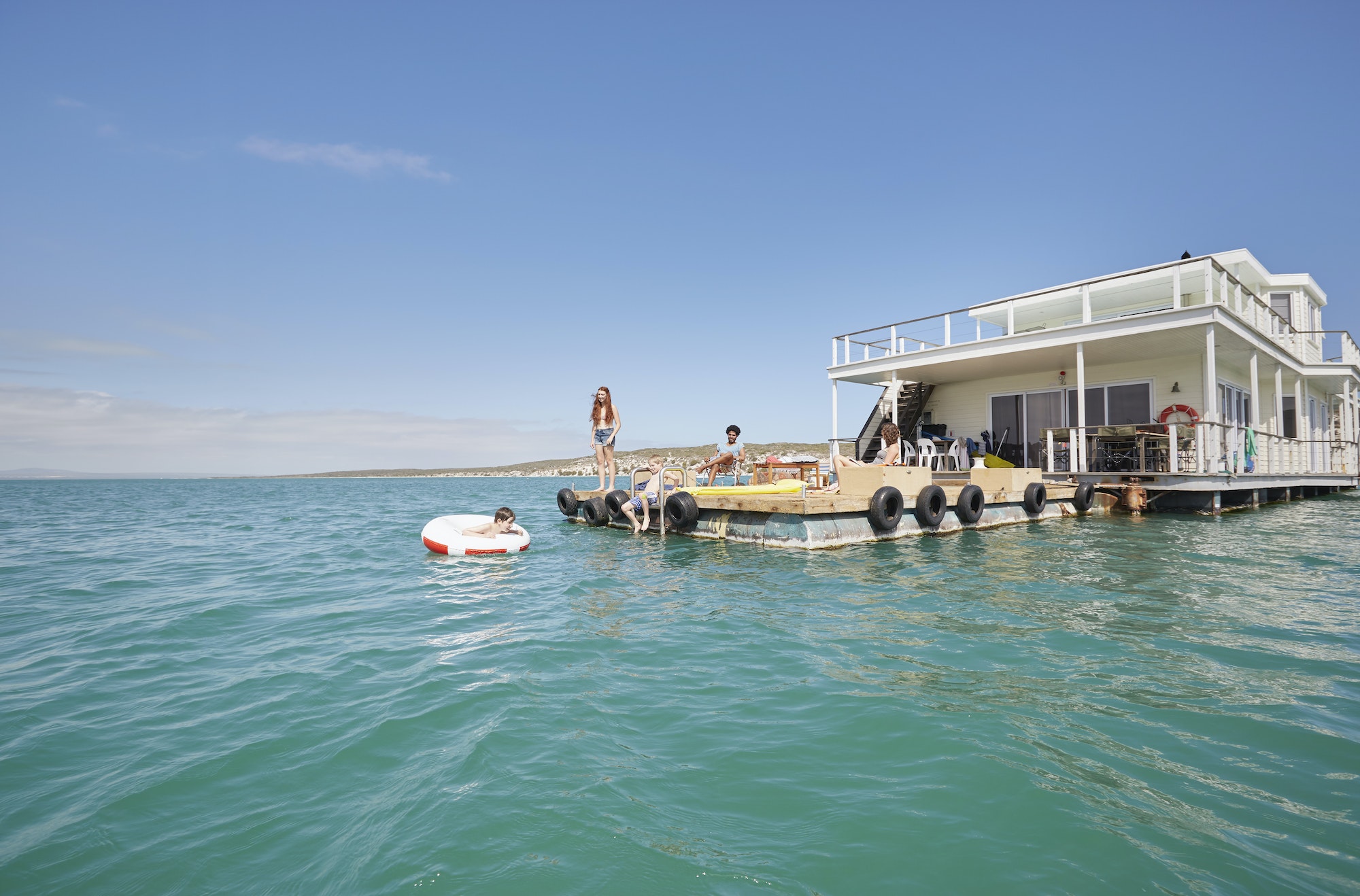
Tips for Buying a Houseboat
If you’re considering buying a houseboat, here are some essential tips to help you make an informed decision:
1. Research the Market
Before purchasing a houseboat, research the market thoroughly. Understand the different types, sizes, and prices available. Compare various options to ensure you find the right houseboat that suits your needs and budget.
2. Get a Professional Survey
Hire a qualified marine surveyor to inspect the houseboat before making a purchase. They will assess the boat’s condition, identify any potential issues or repairs, and provide you with a comprehensive report. This step is crucial to avoid unexpected expenses down the line.
3. Consider Ongoing Maintenance
Factor in the ongoing maintenance costs of owning a houseboat. Regular cleaning, engine servicing, hull inspections, and other maintenance tasks are necessary to keep your houseboat in good condition. Budget for these expenses to ensure the longevity of your investment.
Maintenance and Upkeep
Maintaining a houseboat requires regular care and attention. Here are a few key aspects to consider:
Regular Maintenance Tasks
- Cleaning and Detailing: Regularly clean the interior and exterior of your houseboat to keep it in pristine condition. This includes washing the deck, polishing surfaces, and ensuring proper sanitation.
- Engine and Mechanical Systems: Regularly service and inspect the engines, electrical systems, plumbing, and other mechanical components to prevent any issues and ensure smooth operations.
- Hull Inspection: Periodically inspect the hull for signs of damage or wear. Repair any cracks or leaks promptly to maintain the integrity of the houseboat’s structure.
Insurance and Repairs
Obtaining comprehensive insurance coverage is essential to protect your houseboat from unforeseen events such as accidents, storms, or theft. Additionally, be prepared for potential repair costs and budget accordingly to address any damages that may occur over time.
FAQs
How Much Does It Cost to Dock a Houseboat?
You can dock your houseboat at any number of public marinas around the country. The price you pay for docking will depend on the type of houseboat you’re using, whether it’s new or used, and how long you want to stay docked. Generally speaking, docking a houseboat costs between $25 and $75 per night.
What are the additional costs associated with owning a houseboat?
Additional costs associated with owning a houseboat include the cost of dockage, insurance, registration, and maintenance. Dockage costs vary widely depending on where you keep your houseboat and how long you keep it there.
If you plan to store the boat in a marina, expect to pay $100 to $200 per month for a slip, plus additional electricity and water costs. If you plan to keep the boat in your own backyard or on a trailer, expect to pay about $100 to $300 per month for a mooring or slip. Depending on your state’s laws, you will also need to pay an annual registration fee of about $25.
What are the different financing options for a houseboat?
There are three main types of financing for a houseboat: cash, mortgage, and loan. Each has its own advantages and disadvantages. The best option for you depends on your needs and preferences. Loan options are costly but offer the most flexibility and safety features. Cash is the cheapest option, but it’s also the least flexible. Mortgage loans are more expensive than cash loans but offer more flexibility.
Where can I find a houseboat for sale?
Many websites sell houseboats, including eBay and Amazon.com. If you want to buy a houseboat, you can search online for a boat that meets your needs. You should also check out the seller’s reputation and read reviews from other people who have bought boats from them before.
You can also find a houseboat at a store that sells boats. These stores are called marinas, and some have websites where you can search for boats.
If you want to buy a houseboat but aren’t sure what kind of boat will suit your needs, you can look at the boats on display at a marina. At the marina, you can look at different boats and find out how much they cost.
